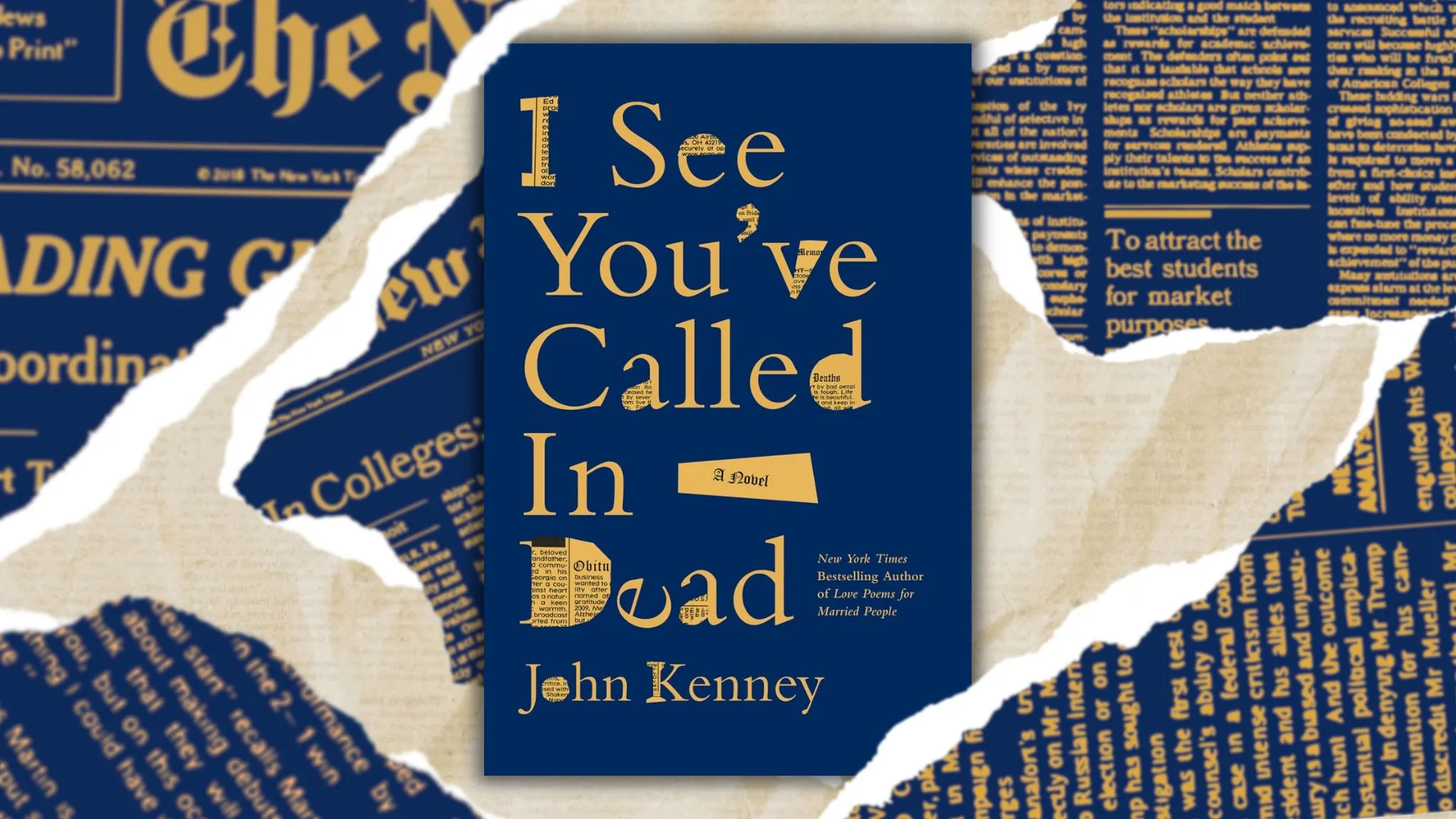

In our new digital age, the most volatile voices are given the loudest platform and are able to spew their most toxic voices. They communicate, creating a feedback loop of toxicity that has resulted in people feeling as though they own products. We own merchandise, pay money for streaming services and physical media. Surely we as the fans own something. If they change it, those people who dare make the art, make the products that we love, we deserve a say in what happens, on what they do, on how they act… Right? Wrong.
Miseryis a 1991 adaptation of a novel of the same name by Stephen King where Paul Sheldon, a beloved author of “Those Misery books” ends up getting in an accident. His salvation comes in Annie Wilkes, a woman who lives in an isolated cabin and just happens to be his number one fan. Sheldon has finished the most recent novel in his Misery series, where he plans on killing off his favorite character.
He plans on “graduating” from Miseryto write something else. Something new.
The term “graduating” is one that has long since been associated with pop idol groups in both Japan and Korea. It refers to when an idol or idol group leaves their agency for one reason or another. The idol can sometimes be moving onto a career outside of the idol industry or even outside of the performing arts. For fans of other creative arts, it is comparable to an actor moving on from a role, a writer choosing to retire old characters, or a singer being told to become an actor.
Such is the case in Satoshi Kon’s1997 film, Perfect Blue. It follows a pop idol who is pressured by her agency to graduate from being a pop idol. She’s told that her career requires her to be a new star. Despite enjoying singing and being an idol, Mima Kirigoe is pressured into performing as an actor in an increasingly sleazy drama, pose in sexually explicit photographs, and, as a cog in a greater product-making machine, feels she shouldn’t inconvenience her superiors by voicing her concerns.
As the world becomes further connected online, “graduation” has become an international phenomenon. So has its manufactured process of creating popular icons in order to appeal to a demographic who can easily move on to another idol when that particular figure’s time is done. While media and companies foster fans, there’s a cynicism with any business. Ultimately, industries want products to sell to a voracious audience, who might not react well when that something they want is taken away.
For horror fans, this is obvious. When John Carpenter decided to retire Michael Myers in Halloween, fans received Halloween 3: The Season of a Witch. Regardless of the common consensus that the film is pretty solid, at the time of its release, fans rejected it. They’d do the same thing to Friday the 13th Part V: A New Beginning for daring to not feature Jason Voorhees. This disappointment used to be isolated. Any particularly unstable fans were alone. That’s no longer the case.
In Misery and Perfect Blue, a creative graduates—one by their own volition in an effort to evolve past their prior successes, and another, forced along in hopes it would advance their career. However, in both cases, their fans feel betrayed and take ownership of the properties they adore. This drive manifests in raw violence and psychological torture.
The Stable “Graduation” and Unstable Fandom of ‘Misery‘
The idea of an obsessive fiction fan who wants to destroy their target of obsession is nothing new. The internet has created an environment where the most obsessive can congregate, often for the better. However, undeniably, toxic people gather and spew toxicity. Actors have been bullied off social media after fans accused them of “ruining” pre-established works of fiction. Look no further than the reaction to the Star Wars sequel trilogy for evidence of this.
Sometimes, it gets worse. In 1996, Ricardo Lopez mailed a letter rigged with sulfuric acid to Icelandic singer Bjork’s home in London. His later recovered video diaries revealed his obsession with Bjork and his rage over her relationship with the musician Goldie. He wanted to possess her, mind, body, and soul. If he couldn’t get that, he’d destroy her. Thankfully, the letter was intercepted before it could reach Bjork.
In this sense, Misery is far from prophetic. Annie Wilkes reads the newest Misery novel that her favorite author wrote, only to demand changes because it doesn’t satisfy her desires. Anyone online can remark that such events have very publicly happened. One recent occurrence is when fans rejected the initial design of Sonic the Hedgehog in the 2020 live-action film, resulting in countless CG artists having to redesign Sonic from scratch.
The difference is that Annie Wilkes has Paul tied to a bed, injured, and his life is in her hands. Annie Wilkes displays all the rage you’d imagine the average internet troll embodies. It’s easy to dismiss such anger when you have thousands of miles and a computer screen as a barrier. To see it presented in Kathy Bates’s Oscar-winning performance, it becomes harder to dismiss as anything short of what it is: nightmare fuel.
Annie Wilkes is the creative’s worst fear: you do something different, and end up in the hands of the one person your new change will piss off most. It is clear throughout the film that, while Annie is absolutely obsessed with Misery and Sheldon’s books, she doesn’t know how to feel about Sheldon as an author. She claims to love him, only to physically inflict pain on him the moment he doesn’t satisfy her wants and needs.
While Misery makes the infamous maiming scene from the book far less bloody, she still slams a mallet against his feet to hobble the author, to keep him dependent on her. This shows the hypocritical nature of fandom. They don’t mind hurting the people who make the things they like. They can claim to love a creator, but really, all the obsessive cares about are the products they produce. Their health, sanity, and lives don’t matter. Just the product.
This gets worse when the product isn’t a book, but rather a person.
‘Perfect Blue’ and the Product of Identity
Obsessive fandom around a book is one thing. It’s a separate entity from the self. While Annie Wilkes projected her own fantasies onto Sheldon, it was never as though he ever mixed his own identity into Misery any more than any writer draws from themselves when creating art. It is not the same as in the idol industry, where the self is the product.
On July 11 2022, VTuber Tsukumo Sana announced that she would be “graduating” from Hololive at the end of that month. At first, reactions were fairly positive, with many fans expressing sadness that she would be going as well as speculation as to why she was leaving. This was very different from the retirement of Mano Aloe from Hololive. She announced her retirement on August 30th, 2020, and, on August 31st, all of her YouTube and Twitter accounts were wiped off the internet. It was as if she hadn’t existed at all, only to be replaced by a new product.
VTubers create a sense of self to market as a product. Much like pop idols. Strip that away, and a chunk of their identity is forcibly removed, all in the name of business.
Which brings us to Perfect Blue.
Mima’s retirement brings about a worst-case scenario for her. Throughout Perfect Blue, we are shown the reactions her fans have to her increasingly lewd public persona as an actor. When Mima first makes her announcement, we see her audience break out into a fight. When she appears in brief cameos on her drama, they question the decision for her to act at all. And when her character on the show is raped, they dismiss her as filthy or jeer her fans as though the role tarnishes her reputation.
Her fans abandon her. And that’s the best-case scenario.
The moment she leaves, Mima starts receiving hateful messages. They first come through fax and later through letter bombs mailed to the drama’s production. She is sent messages leading her to a website called “Mima’s Room.” The website seems devoted to chronicling her every action, written from her perspective. And it outlines her innermost thoughts, including her disgust at her current situation.
The only problem is, Mima didn’t even have a computer until after being told about the site. The website is run by an obsessive fan named Me-Mania. Me-Mania makes Annie Wilkes look downright loving in comparison. He fetishizes an idealized version of Mima, killing everyone he blames for corrupting his idealized Mima. It’s heavily implied he runs a rowdy fan over with his truck. He stabs the drama’s writer and a lewd photographer to death with a screwdriver. When he gets the chance, he tries to rape and murder Mima for being “an imposter” fouling Mima’s name.
On one hand, we learn that Me-Mania is being manipulated by someone claiming to be the real Mima. But on the other hand, Me-Mania isn’t wrong that the real Mima is corrupting his idealized Mima. After all, reality and fantasy seldom match up one-to-one. If you’re incapable of accepting their differences, you will be driven into a mania.
What sets Mima apart from Paul in this comparison, however, is how the characters react to the trauma. Paul fears for his life, yes, but he never questions his sense of reality. He never feels as though his thoughts are invaded, as Mima does.
When it comes to the “real” Mima, it turns out Mima is being stalked by her manager Rumi, who has at some point developed dissociative personality disorder. The secondary persona channels observations made by the primary Rumi personality into emails she delivers to Me-Mania, fueling his obsession. This feedback loop runs parallel to what we often see in toxic online circles. It’s seldom just one fan being toxic. It’s a community of them, talking back and forth until violence springs forth.
Even before the murders and bombs are sent her way, Mima has lost control over her life, being manipulated by a system that refuses to listen to her. Her managers talk over her, only acknowledging what she wants as an afterthought. It’s telling that Mima doesn’t even drive herself until the film’s final shot, where we see her having achieved some degree of self-actualization.
While the rape scene is just a performance and the nude photographs are part of a publicity spread, it’s clear that Mima’s consent is dubious at best. Unlike Paul, who goes along with Annie’s desire for a sequel in order to bide time before his escape, Mima has no end game. Her bosses just want her to produce more content in an unending cycle.
The reason for this is simple: Mima is a product. We see what life existing in the male gaze— filmed by men, written by men, and salivated over by men—can do to a person. She is a cog in a machine over which she has no control. In order to deal with her life, she escapes into fantasies, blurring the line between reality and dream, much as Me-Mania and the “real” Mima do throughout the film. She becomes her work. It’s no surprise that, in her dreams, she blurs the events in her life with what’s happening in her show.
The Horror of Internet Culture
Obsession is not a new thing. The reality is, however, that, as the internet culture has become a major forum of ideas, more and more awful stuff has floated to the surface, turning people and their lives into products. How many people have found all of their personal information floating on 4Chan or KiwiFarms, for example? How many people have found themselves as a product for society’s amusement?
Identity is not a commodity. For many, it’s entertainment.
I don’t really think Misery or Perfect Blue have any answers that will help us stop this real, serious issue. But I do think art offers a valuable reflection through which we can see our world.
In Perfect Blue, mirrors are a common image of the self. With the fractured viewpoint of society, we see the world through our own eyes and through our reflections. When Rumi is seen charging after Mima, we see both her idealized fantasy version and her real, physically fatigued form in the mirror. It’s telling that she’s ultimately subdued by broken glass from a window that she can’t see. It showcases how our own divided reality can sometimes penetrate our material world.
Fiction is that mirror. We can observe and witness reality through that lens in order to perceive some here until unexplored sections of the self. The only question here for anyone reading this far is if you will see that reflection, absorb all that it entails, and learn to grow as a person, or will you just stand still and let yourself fall deeper into obsession, treating people like products, all for your instant gratification?






![‘Human Resources’: The Horror Isn’t Just Late-Stage Capitalism [Watch] ‘Human Resources’: The Horror Isn’t Just Late-Stage Capitalism [Watch]](https://www.dreadcentral.com/wp-content/uploads/2022/12/HUMAN-RESOURCES-STILLS_1.1892.1-960x402.png)
























:quality(85):upscale()/2025/05/06/835/n/1922564/8e601b95681a5cf04194c6.14070357_.png)

:quality(85):upscale()/2025/05/05/100/n/1922564/33582ae7681964cb0d40c8.72464171_.png)



![ABYSMAL RITES – “Restoring The Primordial Order” [Heavy Sludge] ABYSMAL RITES – “Restoring The Primordial Order” [Heavy Sludge]](https://horrornews.net/wp-content/uploads/2025/04/WHD581-600x330.jpg)